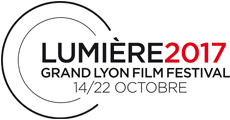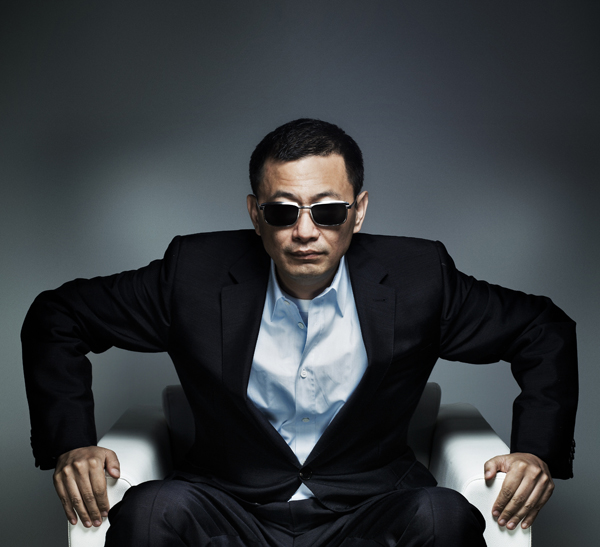Wong Kar-wai
Lumière Award 2017
王家衛
© Patrick Swirc - Modds
Chinese filmmaker Wong Kar-wai will receive this year’s Lumière Award, following in the footsteps of Martin Scorsese and Catherine Deneuve. The distinction will be bestowed upon him during the 9th edition of the Lumière festival, to be held in Lyon and its metropolis from Saturday the 14th to Sunday the 22nd of October 2017.
Attributed by the Institut Lumière, the Lumière Award will be presented to Wong Kar-wai for his unclassifiable films, each with countless flares of beauty, for the trace he is leaving upon cinema history, for all that is glorious and lingering in his work, for the neon lights of Hong Kong and the snows of Manchuria, and because, after all, dark glasses are undeniably classy.
«It is a great honor for me to be the recipient of this award and it gives me great pride to join those distinguished before me,» stated Wong Kar-wai. «To belong, in a way, to this Institut, inspired by the founders of cinema, makes me feel extremely humble. I am already looking forward to being in Lyon in October.»
Watch the video
Wong Kar-wai was born in Shanghai in 1958. At age 5, he emigrated to Hong Kong with his mother. In her company, Wong Kar-wai spent many afternoons at the movie theater, taking in sometimes 2 or 3 Hollywood classics a day, as well as westerns, which his mother was particularly fond of. While studying graphic arts at Hong Kong Polytechnic, Wong Kar-wai discovered European cinema, the New Wave, Bertolucci, Bresson and Godard…
During his studies, he joined the production training course of the Shaw Brothers’ TVB channel, becoming a production assistant on popular series and soap operas. Leaving television for the cinema, he entered Cinema City as a screenwriter and, in seven years, penned a dozen screenplays, writing a total of some fifty scripts altogether.
In 1988, Wong Kar-wai turned his hand to directing with As Tears Go By, followed by Days of Being Wild (1990), Chungking Express (1994), Ashes of Time (1994) and Fallen Angels (1995). Cult classics today, these films laid the thematic foundations of Wong Kar-wai’s work: the notion of time, wandering, remembrance, the wounds of love. His city, Hong Kong, has also played a role in his films. His cinema is that of a generation, chronicling lost youth and marginal characters. By developing his own narrative codes, he has imposed a cinéma d’auteur on a Hong Kong landscape previously known around the world for its martial arts movies or thrillers.
He achieved solid international recognition in 1997 with Happy Together, winning Best Director at the Cannes Film Festival, and particularly with In the Mood for Love (2000), which garnered tremendous public and critical success. Wong Kar-wai then went on to direct 2046 (2004), My Blueberry Nights (2007) and finally, The Grandmaster (2013), to date, his greatest success in China, to whom the sovereignty of Hong Kong had returned.
In his country, Wong Kar-wai is a mysterious icon, an artisan bringing infinite care to create each scene and setting for his actors - Tony Leung, Maggie Cheung, Andy Lau, Zhang Ziyi, Gong Li, Leslie Cheung and Faye Wong – as well as for Norah Jones, Jude Law, Natalie Portman... Impenetrable behind his dark glasses and plumes of smoke, Wong Kar-wai is a perfectionist, obsessive filmmaker, postponing the end of filming, extending the months of editing, as if to delay the moment when his film will no longer completely belong to him. Speaking of The Grandmaster, he admits, «Actually, I would have liked the experience of this film to never end.»
Melancholic, visual, contemplative and musical, the cinema of Wong Kar-wai has reached beyond the circle of moviegoers and critics, attracting a public drawn to his search for the esthetic and poetic, accompanied by his chief operator Christopher Doyle and artistic director William Chang.
«He is a painter of the city and of the human heart, of our desires, our secrets and frustrations,» wrote Michel Ciment and Hubert Niogret in Positif. “His relationship with Hong Kong and his fascination with women are at the core of his creation. This is where the greatest director of Hong Kong resembles the artists of late romanticism, a Baudelaire or a Gustave Moreau. For them as well, in the heart of exquisite beauty hides an unspeakable suffering.»
In more than 25 years, Wong Kar-wai has directed 10 feature films, many short films, as well as clips for the cinema, television and music. His body of work has been recognized by numerous awards in Asia and all over the globe.
The Lumière Award will be presented to Wong Kar-wai on Friday, October 20th at 7:30pm at the Lyon Convention Center in the presence of the French audience and many special guests from around the world.
The Lumière Award was created by Thierry Frémaux and Bertrand Tavernier to celebrate a filmmaker or personality of the cinema in Lyon, the very place where the Cinematograph was invented by Louis and Auguste Lumière, and where they shot their first film, Leaving the Factory, in 1895. Because we must express our appreciation to the directors and artists of the cinema who fill our lives, the Lumière Award is a distinction reflecting time, gratitude, and admiration.




